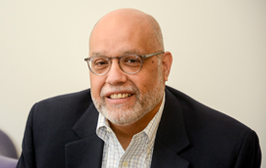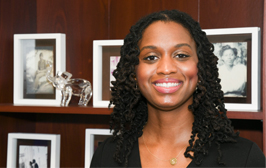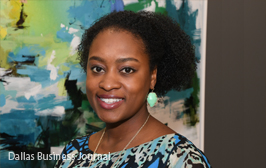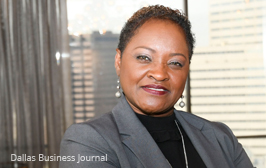© 2018 The Texas Lawbook.
By Mark Curriden
(Jan. 26) – Nearly every major corporate law firm in Texas claims to seek a diversified workforce.
Despite the proclamations, multiple surveys conducted by bar associations and diversity groups show that – with a minute number of exceptions – the efforts have overwhelmingly failed, as women and minorities remain woefully under-represented in the state’s largest law firms.
But legal industry insiders say that there is a growing force within the North Texas business law community that appears ready to become considerably more aggressive in pushing – or possibly even forcing – corporate law firms to recruit, retain and promote minority and women lawyers.
Corporate general counsel – also known as the clients hiring and paying the bills of the lawyers – are growing impatient with the lack of diversity achievements of the law firms that they hire and many are considering taking hardline approaches against firms that are not aggressive enough.
“There are law firms that I no longer use because I realized that they do not take diversity seriously enough,” says Richardson-based MetroPCS Chief Counsel Chris Luna, who is past president of the Dallas Hispanic Law Foundation.

The heightened scrutiny from Texas companies is the result of an increased number of ethnic minorities and women joining corporate legal departments and climbing to leadership positions.
Texas Lawbook research shows that dozens of Texas-based corporate legal departments have women or lawyers of color as general counsel or in a senior leadership role.
Examples in North Texas abound, including Luna, Lennox International Chief Legal Officer John Torres, Vistra Energy GC Stephanie Zapata Moore, Fluor Corp. CLO Carlos Hernandez, Hunt Consolidated GC David Hernandez, Kronos Worldwide GC Clarence Brown, Rug Doctor GC Amy Howell and LSG Sky Chefs GC Anne Sparks.
The new U.S. Attorney for the North District of Texas is Erin Nealy Cox. The Chief Judge of the U.S. District Court for the Northern District is Barbara Lynn. The chief bankruptcy judge in North Texas is Barbara Houser. The chief judge of the U.S. Court of Appeals for the Fifth Circuit, Carl Stewart, and the U.S. Securities and Exchange Commission’s regional director, Shamoil Shipchandler, are ethnic minorities.
Even more importantly, the large number of young women and minority lawyers rising through the corporate legal department ranks at companies such as American Airlines, AT&T, Liberty Mutual, Orix USA, PepsiCo and Toyota are changing the face – and the attitudes – of the business law profession.
In fact, 20 of the 27 finalists for the 2017 Outstanding Corporate Counsel Awards, which honors the successes of corporate in-house counsel, are women or minorities.
By contrast, the number of women and minorities in the top spot at Texas corporate law firms can be counted on one hand. A survey by The Texas Lawbook found that less than three percent of the partners at the 30 largest corporate law firms are people of color.
“You look around and you will see that the business clients are increasingly diverse and the leaders of the courts and government are increasingly diverse, but the corporate law firms remain solidly white and male-dominated,” says North Texas Tollway Authority General Counsel Dena Denooyer Stroh. “Something is wrong with that picture.

Many Texas law firms created diversity task forces in the late 1990s and early 2000s. They promised to target minorities and women in their recruiting efforts and developed mentoring programs. They even promised to put more women and minorities in positions of leadership.
But studies show that diversity numbers have barely moved upward for women lawyers at corporate law firms and the number of ethnic minorities in partnership positions has actually declined.
“Law firm diversity initiatives are great, but many law firm leaders have mastered the talk but do not walk the walk,” Luna says. “The aggregate number of minority lawyers has gotten a little better, but the percentage of lawyers of color has not improved. In fact, we have actually seen a regression in recent years.
“I’m a firm believer that we need to use carrots and sticks to push law firms to be more aggressive about diversity,” he says. “I give more work to the law firms that work the hardest at improving their diversity numbers.”
A growing number of leaders in corporate legal departments are adopting Luna’s concerns and frustrations.

Wright and a handful of other African-American women corporate counsel are part of a new group called the NEW Roundtable, a nonprofit organization that drives the inclusion and advancement of African-American women attorneys within the legal profession.
“We started the group to bring together African-American women – both at law firms and in-house – to support each other through mentoring, recommending each other for jobs and giving business to each other,” says Kimberly-Clark Corp. Assistant General Counsel Chasity Henry, who founded the NEW Roundtable.
Henry and others say that the problem with diversity in the legal profession can be traced to the fact there are fewer minority law school students, which leads to the low number of minority lawyers coming out of law school.

AT&T Senior Counsel Juanita Harris, who leads diversity and inclusion efforts for the telecomm giant, says most law firms do not understand that the problem has deep roots.
“Law firms generally want to do the right thing, but they don’t know what to do or where the problem begins,” Harris says. “It’s always the pipeline. We need to start grooming young people much earlier and much lower in the pipeline. By the end of college, students have made decisions – or missed making decisions – that could lead them to go to law school or become lawyers.”
Harris says the legal community needs to start working with low-income, minority kids who are freshmen and sophomores in high school to get them better prepared to be on the law school track.

“High school is a great place to start, but we need to go even lower to junior high,” she says. “The earlier we can expose kids to lawyers, the better success we will have.”
As part of its Preferred Counsel program, AT&T requires the law firms that do legal work for the company be transparent in their diversity efforts and demands that the lawyers working on its matters be diverse.
“Our billing system also is able to give us a robust, detailed view on how diverse the law firms’ teams are that are working on our business, how many of their hours are actually being billed by diverse lawyers, and how senior they are,” Harris says. “That data works well in conjunction with the surveys our outside firms complete, and the conversations we have with them, to give us a good idea of what our outside firms are doing in this area.”
Editor’s Note: The Texas Lawbook is undertaking a new public service effort designed to promote diversity within the professions of legal and legal journalism. The Lawbook is partnering with the non-profit Education is Freedom organization to identify high school freshman, sophomores and juniors who are interested in careers in law and journalism. Each year, we will sponsor new students to help them be better prepared for a legal education – from providing personal counseling, funding SAT prep courses, providing summer jobs and helping identify and apply for scholarships for college and eventually law school. Our plan is to follow these students all the way through their education. We are asking our subscribers and sponsors to help us with this effort. The Lawbook team will provide more detailed information about this effort in an upcoming article.
© 2018 The Texas Lawbook. Content of The Texas Lawbook is controlled and protected by specific licensing agreements with our subscribers and under federal copyright laws. Any distribution of this content without the consent of The Texas Lawbook is prohibited.
If you see any inaccuracy in any article in The Texas Lawbook, please contact us. Our goal is content that is 100% true and accurate. Thank you.
